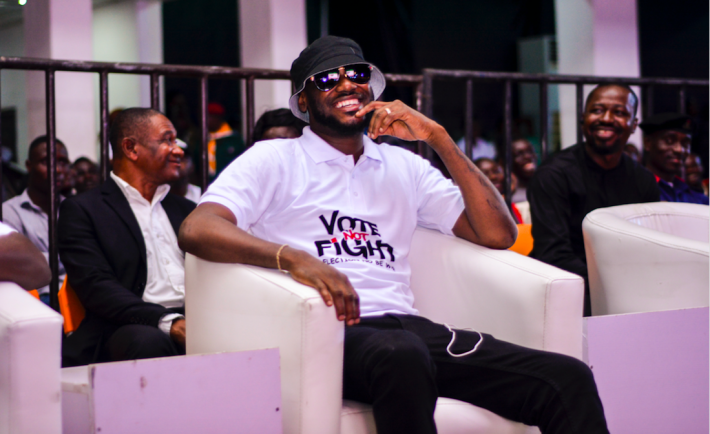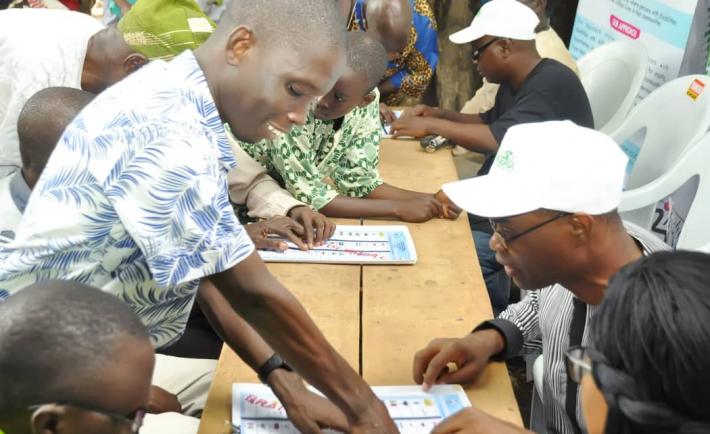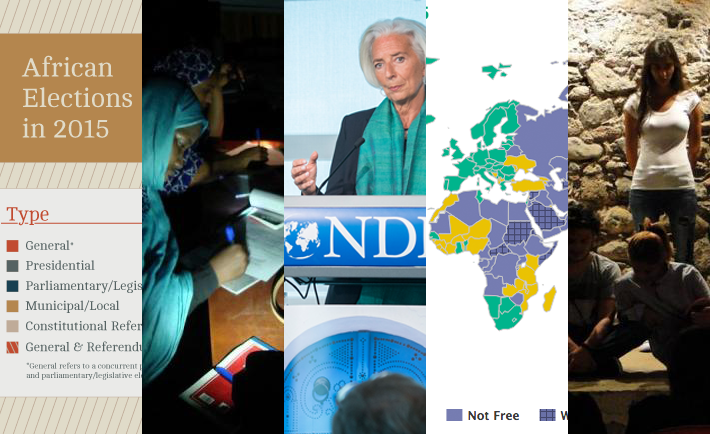Election-related violence is a major challenge that Nigeria has been grappling with for a while now. Election related deaths have robbed many citizens of their lives, particularly youth, who have played dual roles as perpetrators and victims.
How One Musician Has Used His Voice to Empower Youth in Nigeria During Elections
The Success of Nigeria's Inaugural Braille Ballot Guides
In advocating for strong democratic institutions around the world, it is easy to overlook the rich diversity of democratic traditions across nations. In the United States, presidential hopefuls descend on Iowa every four years to grill steaks for eager caucus-goers. In London, commuters tune to BBC Radio to hear the prime minister and opposition leader spar on issues of the day. And in Nigeria, voters press their thumbs into ink pads, locate the name and party of their chosen candidate, and leave a thumbprint to mark their democratic choice.
Nigerian Disability Advocates Conduct First-Ever Election Accessibility Audits
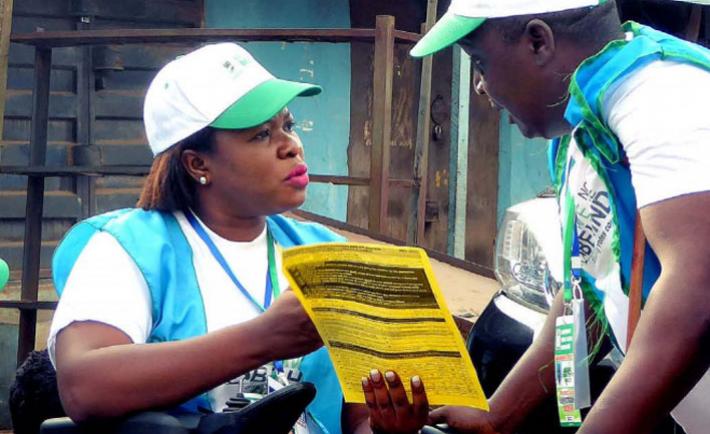
IFA's Grace Jerry (left) discusses the audit checklist with another Access Nigeria observer during an election day deployment.
In Nigeria, there is a dearth of reliable data on the number of people with disabilities, let alone the challenges they face participating in elections. In its World Report on Disability, the World Health Organization estimates that 15 percent of the world’s population lives with some form of disability. Based on this report, IFA approximates that there are 25 million Nigerians with disabilities.
For this reason, disability rights organization and NDI partner Inclusive Friends Association (IFA) audited polling unit accessibility during off-cycle gubernatorial elections in Edo (September 2016) and Ondo (November 2016) states, using a sample-based observation deployment methodology similar to parallel vote tabulation. The audits assessed the availability of handrails, ramps, braille or tactile ballots, written voting instructions and sign language interpreters. Armed with these newfound statistics, disability rights advocates such as IFA are now better equipped to make advocacy demands on decision makers to address barriers to the political participation for persons with disabilities in Nigeria.
Global Women's Leadership Program Brings Women MPs to World Bank 2016 Fragility Forum
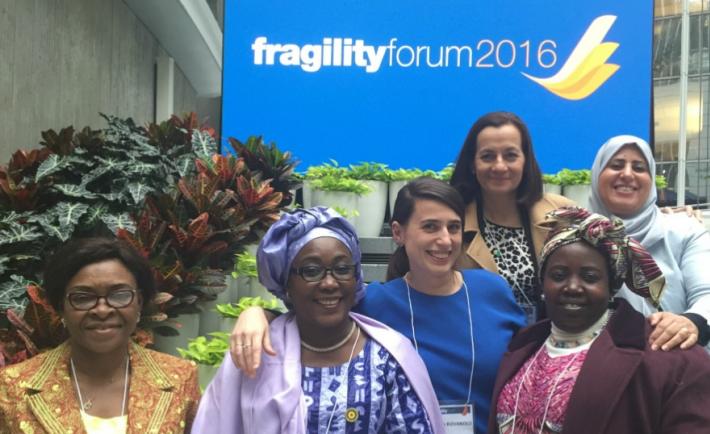
After the delegates' closing remarks at the 2016 Fragility Forum, from left to right: Stella Ngwu (Nigeria), Aissata Toure Diallo (Mali), Besa Rizvanolli (NDI), Clara Rojas (Colombia), Sabina Dario Lokolong (South Sudan), Dr. Sultana Mismari (Libya)
In fragile and violent places, whether it is Colombia, Libya, Mali, Nigeria, or South Sudan, the role of women during crisis, war, and post-conflict reconstruction has been critical. Conflicts often force women to get organized and to safeguard the basic necessities that bolster day-to-day life in each family. They also participate in fighting wars, and in rebuilding their communities. Women act as peacekeepers, relief workers, and mediators. Yet, when peace talks occur, women are not invited to the table and peace agreements are often drafted without the critical perspectives of women.
With this reality in mind, under USAID’s Global Women’s Leadership Program (GWLP), NDI brought a delegation of women members of parliament (MPs) to the World Bank Group Fragility Conflict and Violence Forum 2016 (also referred to as the Fragility Forum) in Washington, DC in early March.
Best DemWorks Posts of 2015
Thank you for coming along on NDI’s journey into blogging. Since the DemWorks blog launched in February 2015, we have published over 100 posts and reached 57,000 users in 177 countries around the world. More than 400 of you were gracious enough to let us into your email inboxes through the new subscription feature, which was launched in October. While NDI is not a media organization, we have the world’s deepest pool of democracy experts. We hope you have enjoyed hearing our insights and will join us again in 2016. Please subscribe! Without further ado, here’s my list of the top blog posts from 2015.
The Next Big Step for Campaigns: Taking Mobile Canvassing Technology on the Road

A party organizer practices voter canvassing through a door-to-door exercise as part of an NDI political party training on July 29, 2015. Photo credit: Munira Aziz, NDI Afghanistan
Canvassing, an organized system of face-to-face citizen outreach, has long been used by politicians and advocacy groups to encourage constituents to vote, assess the habits and preferences of voters, and gather public opinion data. The time-honored tradition of knocking on doors remains an integral part of campaigns, though new mobile technology is starting to change the way canvassers operate on the ground.

